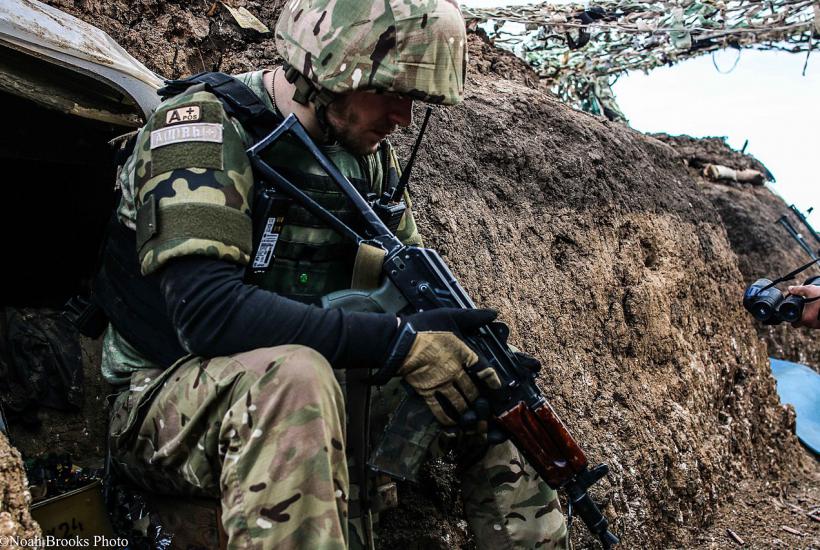
Lavrov: Moscow Open to Negotiations Without Preconditions Amid Ceasefire Dispute
Russia is open to direct negotiations with Ukraine without any preconditions and views Kyiv’s call for a 30-day ceasefire as a preliminary condition, Russian Foreign Minister Sergey Lavrov stated during a press conference following a meeting of BRICS foreign ministers in Brazil.

Photo: flickr.com by Министерство обороны Украины,
Ukrainian soldier in a trench
On April 25, Russian President Vladimir Putin, during a meeting with U.S. Special Envoy Steven Witkoff, expressed Russia’s willingness to resume talks with Ukraine without any preconditions, according to the Kremlin. On April 28, Putin announced a ceasefire to coincide with celebrations of the 80th anniversary of the Victory in the Great Patriotic War, lasting from midnight on May 8 to midnight on May 11. Ukrainian President Volodymyr Zelensky dismissed the offer as a “manipulation attempt” and instead proposed an immediate 30-day ceasefire.
“Our proposal, voiced by President Putin, is to begin direct negotiations without preconditions. The ceasefire being demanded by Ukraine is viewed as a preliminary condition, which would be used to further support the Kyiv regime and strengthen its military capabilities,” Lavrov said.
According to Lavrov, calls from Europe urging Russia to accept Ukraine’s ceasefire proposal reflect an understanding that “the Ukrainian Armed Forces are suffering defeats on the battlefield and that their plans to inflict a strategic defeat on the Russian Federation will never come true.”
The Kremlin described Ukraine’s response to the May 9 ceasefire offer as manipulative.
Back on March 11, Ukraine expressed readiness for a full 30-day ceasefire following talks with the United States. More than a month later, Putin declared a temporary Easter truce from 6:00 p. m. on April 19 until midnight on April 21. Zelensky proposed extending the truce if both sides adhered to it. However, the ceasefire collapsed after the Easter holiday.
Russia’s Defense Ministry reported that during the truce period, Ukrainian forces continued artillery attacks and drone strikes on Russian positions, documenting approximately 4,900 violations.
Lavrov claimed that the ceasefire was not respected by the Ukrainian side and recalled previously unfulfilled ceasefires, including those under the 2014 Minsk agreements. He reiterated that there is currently no mechanism for “honest monitoring” of an extended ceasefire.
Details
Sergey Viktorovich Lavrov (Russian: Сергей Викторович Лавров, IPA: [sʲɪrˈɡʲej ˈvʲiktərəvʲɪtɕ lɐˈvrof]; born 21 March 1950) is a Russian diplomat who has served as Minister of Foreign Affairs since 2004. He is the longest-serving Russian foreign minister since Andrei Gromyko during the Soviet Union. Lavrov was born in Moscow and graduated from the Moscow State Institute of International Relations (MGIMO) in 1972. He received his first Soviet diplomatic posting in Sri Lanka, and speaks fluent Sinhala, Dhivehi, English, and French, in addition to his native Russian. From 1981 to 1988 Lavrov held several posts in the Soviet Permanent Mission to the United Nations in New York City. Starting in the late 1980s he was deputy director and then director of the Foreign Ministry’s Department of International Organizations before becoming a Deputy Minister of Foreign Affairs in 1992. Lavrov was the permanent representative of the Russian Federation to the United Nations from 1994 to 2004. His tenure in that role coincided with several crises, namely the Kosovo War and the U.S.-led invasion of Iraq. Lavrov gained a reputation for assertively defending Russia’s foreign policy interests and was considered to be the most influential member of the United Nations Security Council. He was appointed Minister of Foreign Affairs in March 2004.
>




